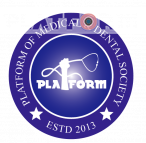What are the minimum requirements to become a blood donor?
Generally, you must be at least 17 years of age, a minimum of 50 kilograms, and in basic good health.
Will donating blood hurt?
You may feel a slight sting in the beginning lasting only a couple of seconds, but there should be no discomfort during the donation.
How badly is blood needed?
Blood supplies can vary depending on the region and time of year. As donor qualifications continue to become stricter and as the donor population ages, our nation is at risk of a low blood supply. If you are eligible, your blood donations are needed.
Can I get AIDS from donating blood?
No. There is no risk of contracting AIDS or any other disease through the donation process. Each collection kit is sterile, pre-packaged and used only once.
Do I have enough blood in my body to donate?
Yes. The body contains 5 litre of blood. Your whole blood donation is approximately 450 ml.
How much blood is taken?
For a whole blood donation, approximately 450 milliliter (which weighs about 0.45 kg) is collected. For a platelet donation, the amount collected depends on your height, weight and platelet count.
How much time does it take for my body to replace the blood that I donated?
Not long at all. The volume of fluids will adjust within a few hours of your donation. The red blood cells will be replaced within a few weeks.
How often may I donate?
You may donate whole blood once every 90 days , which allows plenty of time for your red cells to be replenished. Platelet donors may donate more frequently — as often as once every seven days and up to 24 times per year. This is because the body replenishes platelets and plasma more quickly than red cells. Platelets will return to normal levels within about 72 hours of donating. Plasma (the liquid portion of your blood) will return to normal levels within a couple of days. Red blood cells (the oxygen-carrying cells) will take approximately two weeks to reach their normal levels.
How long until my blood is used?
Most blood donations are processed and available for use within 48 hours.
Are the health history questions necessary every time I donate?
To ensure the safest possible blood supply, all donors must be asked all the screening questions at each donation.
Is there anything I should do before I donate?
Be sure to eat well at your regular mealtimes and drink plenty of fluids.
If I was deferred once before, am I still ineligible to donate?
If your deferral is of a permanent nature, you will be informed. Otherwise, the deferral time depends upon the reason for deferral. Prior to each donation, you will be given a mini-physical and medical interview. At that time, it will be determined if you are eligible to donate blood on that particular day.
If I just received a Influenza Vaccine, can I donate blood?
Yes. There is no waiting period to donate after receiving a Influenza Vaccine.
If I have a cold or the flu, can I donate blood?
In order to donate, blood centers require that you be in generally good health (symptom-free) and recommend that you are feeling well.
Can I still donate if I have high blood pressure?
Yes, if your blood pressure in under control and within the limits set in the donation guidelines.
How can I increase my iron level?
Donors may be deferred from donating due to a low hematocrit (iron) level. This restriction is for the safety of the donor and ensures that after donation, the donor’s hematocrit level will still be within the normal range for a healthy adult. Since hematocrit levels can fluctuate daily, a deferral for a low hematocrit level does not mean a donor is anemic. A donor may help increase his or her hematocrit levels by eating foods high in iron such as red meat, dark green vegetables and raisins or by taking a multivitamin that contains iron.
How long will the actual donation process take?
The actual donation takes about 5-10 minutes. The entire donation process, from registration to post-donation refreshments, takes about one hour.
What types of tests are performed on donated blood?
After blood is drawn, it is tested for ABO group (blood type) and RH type (positive or negative), as well as for any unexpected red blood cell antibodies that may cause problems for the recipient. Screening tests performed are listed below:
* Hepatitis B surface antigen (HbsAg)
* Hepatitis B core antibody (anti-HBc)
* Hepatitis C virus antibody (anti – HCV)
* HIV-1 and HIV-2 antibody (anti HIV-1 and anti HIV-2)
* HIV p24 antigen
* HTLV-I and HTLV-II antibody (anti HTLV-I and anti HTLV-II)
* Serologic test for syphilis
* Nucleic Acid Amplification Testing (NAT)
How will I feel after I donate?
Most people feel great after giving blood. If you feel any abnormal symptoms, let a doctor at the blood donation center or blood donation camp know. You should avoid lifting heavy objects or strenuous exercise for the next 24 hours; otherwise you can resume full activity as long as you feel well.
Where can I donate blood?
Use the to find the blood donation center nearest you, and then contact the blood bank to make an appointment and find out what they require.
What can you do if you aren’t eligible to donate?
While a given individual may be unable to donate, he or she may be able to recruit a suitable donor. Blood banks are always in need of volunteers to assist at blood draws or to organize mobile blood donation camp. In addition, monetary donations are always welcome to help ensure that blood banks can continue to provide safe blood to those in need.
Written By:
Banaful Roy



Very good and informative message.